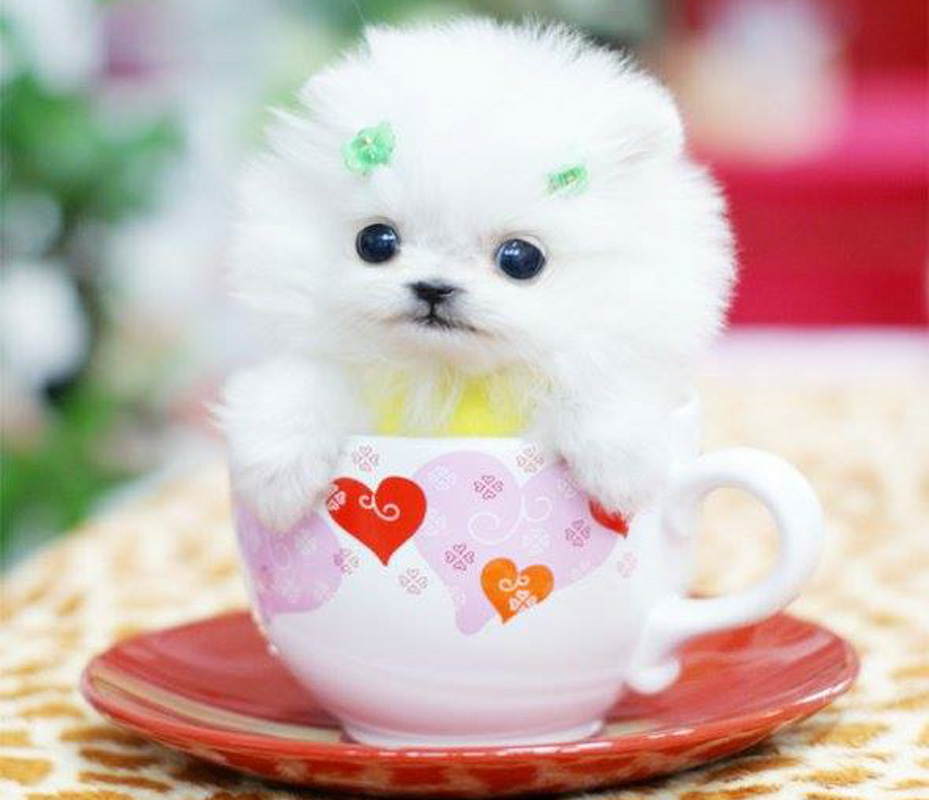Unraveling the Teacup Dog Mystery: Understanding the Enigmatic World of Teacup Dogs in the Animal Kingdom

Teacup dog is a name that is no longer strange to those who like to keep pets. These miniature canines have captured the hearts of many with their adorable size and irresistible charm. However, there is often confusion surrounding the term “Teacup” as it is mistakenly perceived as a dog breed. In reality, Teacup is not a distinct breed but rather a term used to describe exceptionally small dogs, usually weighing less than 4 pounds.

To truly understand the enigmatic world of Teacup dogs, we must delve into the fascinating realm of the Animal Kingdom. Dogs, as we know, belong to the Canidae family, which includes various species such as wolves, foxes, and domestic dogs. Within this family, there are numerous breeds that exhibit a wide range of sizes, colors, and temperaments. Teacup dogs, however, are not recognized as a specific breed by major kennel clubs and organizations.
The term “Teacup” is primarily used to describe small dog breeds or individual dogs that are significantly smaller than the average size for their respective breeds. These miniature canines are typically a result of selective breeding practices aimed at reducing their size. Breeders may pair smaller-sized parents or intentionally introduce genes that promote small stature. However, it’s important to note that such breeding practices can pose health risks and ethical concerns.

Teacup dogs come in various breeds, including Yorkshire Terriers, Chihuahuas, Pomeranians, Maltese, and Shih Tzus, among others. Their diminutive size often captivates dog lovers, making them highly sought after as pets. However, potential owners must be aware of the challenges that come with caring for Teacup dogs. Due to their delicate nature, these tiny canines require extra attention and care to ensure their well-being.
One significant concern surrounding Teacup dogs is their susceptibility to health issues. The selective breeding practices aimed at achieving their small size can lead to a range of medical problems. These may include fragile bones, dental issues, respiratory difficulties, digestive disorders, and a shortened lifespan. Additionally, Teacup dogs may be more prone to injuries due to their fragile bones and susceptibility to accidents.
Another aspect to consider is the ethical debate surrounding the breeding and sale of Teacup dogs. Some argue that intentionally breeding dogs to be unnaturally small can lead to serious health problems and perpetuate an unhealthy fascination with miniature animals. Others contend that responsible breeding practices can mitigate health risks and that Teacup dogs can live happy and healthy lives with proper care.

Regardless of the arguments, it is essential for potential Teacup dog owners to research extensively and choose reputable breeders who prioritize the health and well-being of their dogs. Adopting from shelters or rescue organizations is also a commendable option, as many Teacup dogs find themselves in need of loving homes.
In conclusion, the term “Teacup” in the context of dogs does not refer to a specific breed but rather describes exceptionally small dogs. These miniature canines are the result of selective breeding practices aimed at achieving a diminutive size. While their adorable appearance may be appealing, potential owners must be aware of the health risks and ethical concerns associated with Teacup dogs. Responsible research, proper care, and a commitment to their well-being are crucial in providing a happy and fulfilling life for these enigmatic creatures within the Animal Kingdom.



